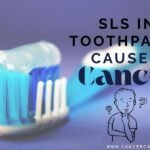When I first came across the link between diabetes and cancer, I was surprised. Like most people, I thought of them as separate health problems. But if you’re living with diabetes—or you’ve just been diagnosed with cancer—you might be wondering:
Is there a connection?
Can diabetes increase your cancer risk?
If I have diabetes, should I worry more about cancer?
These are the questions I’ll try to answer clearly and simply.
Let’s Start with the Basics
Diabetes is a chronic condition where your body struggles to manage blood sugar levels.
There are two main types: Type 1 and Type 2 diabetes. Most cases of diabetes in adults are Type 2.
Cancer is a disease where cells grow out of control. Different types of cancer affect different organs and tissues.
Now here’s the interesting part. Studies show that people with Type 2 diabetes may have a higher risk of certain types of cancer. Let’s see how the two are connected.
What the Research Says
According to the American Diabetes Association, people with diabetes have a higher risk of developing:
- Liver cancer
- Pancreatic cancer
- Endometrial (uterine) cancer
- Colorectal cancer
- Breast cancer
- Bladder cancer
Why? Because high insulin levels, inflammation, and high blood sugar—common in diabetes—can create an environment where cancer cells thrive.
That doesn’t mean every diabetic will get cancer. But it does mean you should stay informed and alert.
So, Does Diabetes Cause Cancer?
Let’s be clear. Diabetes itself does not directly cause cancer.
But it can increase your risk over time, especially if it’s not well controlled.
Here’s why:
- Insulin Resistance: In Type 2 diabetes, your body becomes resistant to insulin. To compensate, it produces more. High insulin levels can make certain cells grow faster—including cancer cells.
- Chronic Inflammation: Diabetes often leads to long-term inflammation. This can damage DNA and increase the chances of cancer forming.
- Obesity and Lifestyle: Many people with Type 2 diabetes are also overweight. And obesity is a major cancer risk factor.
Real Talk: If You Have Diabetes, Should You Be Worried?
Worried? Maybe a little. But more importantly—you should be aware.
If you already have diabetes, you’re probably used to watching your blood sugar, diet, and weight. That’s great.
Now, take the same approach toward cancer awareness:
- Don’t skip your cancer screenings.
- Ask your doctor if you’re at higher risk.
- Pay attention to unusual symptoms.
- Live as healthy as you can—because it truly helps.
What Kinds of Cancer Are Most Common with Diabetes?
Here’s a quick overview of cancers that have been found to be more common among people with Type 2 diabetes:
Liver Cancer
The liver processes everything, including insulin. Constant stress from diabetes can increase the chances of liver damage and liver cancer.
Pancreatic Cancer
The pancreas plays a big role in diabetes. If it’s inflamed or overworked, cancer risk may increase.
Endometrial and Breast Cancer
Women with diabetes may have hormonal imbalances that raise the risk of these cancers.
Bladder and Colorectal Cancer
High sugar levels in the urine and poor bowel health may contribute to these risks.
If you’re dealing with both diabetes and cancer, you may need a special care plan.
How to Lower Your Risk (Even if You Have Diabetes)
This is the part where you take control. Even if you can’t cure diabetes, you can reduce cancer risk.
Here’s what helps:
- Control your blood sugar – Consistently.
- Stay active – Even light walking daily makes a difference.
- Lose weight if needed – Even a 5–10% drop can improve health.
- Eat a balanced diet – Low in sugar, high in vegetables, lean proteins.
- Avoid tobacco and limit alcohol – Both increase cancer risk.
- Get regular screenings – Colonoscopy, mammograms, prostate tests, etc.
What If You Already Have Cancer and Diabetes?
This can be tough. Both diseases need attention, and treatments can affect each other.
Some cancer treatments raise blood sugar levels. Others might affect how you eat or move. So your doctor may adjust your diabetes meds or insulin.
What helped me understand this better was this: your care team should include both an oncologist and an endocrinologist. They’ll work together to manage both conditions safely.
Final Thoughts: Stay Aware, Not Afraid
I’m not a doctor. But I’ve spent time learning about the link between diabetes and cancer to help people like you understand what’s going on.
Here’s what I’d say to anyone with diabetes reading this:
Don’t panic—but pay attention.
Yes, your risk for certain cancers might be higher. But you can reduce that risk by making small, steady changes in your daily life.
Awareness is power. And when it comes to cancer, early action saves lives.
Sources:
American Diabetes Association – Diabetes and Cancer
National Cancer Institute – Obesity and Cancer
Centers for Disease Control and Prevention (CDC) – Diabetes and Your Health



